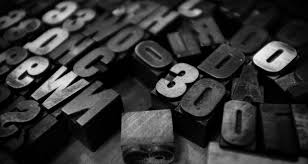Big Publishing House or Indie Publisher: That Is the Question

It’s a widespread opinion and conviction of many: a big publishing house equals more business turnover, more PR and visibility, consequently more of orders and devoted authors, or not? Many people think so, until they move jobs from a small indie publisher to a publishing giant or decide to write a book. In addition, it turns out, the answer is more versatile than it might seem in the begging and, apparently, bigger publisher does not mean bigger sales and bigger success.

Karina Princess Bagration
One among many reasons is that at the larger publishing house, big-name authors are prioritized no matter how amazing your book might be (for example, JK Rowling, “Harry Potter” author, who stated in her Guardian interview “she received ‘loads’ of rejections before Harry Potter success”). According to her, to add insult to injury, the agent also held onto the folder she submitted her work in, she wrote on Twitter, in response to a question from a fan who asked if she would “ever get nervous emailing agents” when she first started out. “The first agent I ever queried sent back a slip saying ‘My list is full. The folder you sent wouldn’t fit in the envelope,” replied Rowling. “I really minded about the folder, because I had almost no money and had to buy another one.”
As we may see, it is easy for the unknown authors to get lost completely in the “ocean” of famous names and to feel completely de-prioritized. Good solution and” healthy” alternative could be to address the indie publisher, which appear more and more at a surface, or, alternatively, to self-publish a book. However, in the latter case, there is more probability it will take form of an e-book, not a traditional, ink smelling, “warm” paper one. Very often, the concepts of indie publishing and self-publishing are confused, as they are believed to be same. To some extent, it is true, but not completely, as there is a still an important difference. A self-publisher (an author that publishes her or his own works) does differ from an independent press agency, which is a small publishing house that works with multiple authors (or, alternatively, with just a few selected ones). As stated in Wikipedia: “small press”, “indie publisher”, and “independent press” are often used interchangeably. “Independent press” defined as publishing business that are not part of large multinational corporations. Outlined this way, these businesses make up approximately half of the market share of the book publishing industry.
Many small presses agencies rely on specialization in genre fiction, poetry, or limited-edition books or magazines, but there are also thousands that focus on niche non-fiction markets.” The author should be morally prepared that small publishing houses (especially in post COVID era) might not have a traditional distributor which would “build the bridge” between the publishing house itself and retailers. Despite that, there is a good news, that small publishers might develop their own solutions with help of various professional networks such as panodyssey (https://www.panodyssey.com/en/welcome), which gives modern authors new opportunities and connects people around their passion. The landing page states it was created to help creative people to collaborate with like-minded people and get rewarded for their work. Another well-known solutions which does not need to be advertised is LinkedIn (https://www.linkedin.com/) and Asmallworld (https://www.asmallworld.com/).
In addition, today, with the availability of Ingram’s Lightning Source and other such services, retail distribution is accessible even for the smallest of indie publishers. Some of indie press agencies which are successfully developing and are highly advisable to be added to the “ wish list” are USA based Genius Press ( Publishing Genius Books are distributed to the trade by Small Press Distribution), Black Sparrow Press (Founded in Los Angeles in 1966 by John Martin, Black Sparrow Press is home to vital poetry, fiction, and nonfiction. Today, the imprint both celebrates its legendary, classic authors such as Lucia Berlin, Wanda Coleman, and Charles Reznikoff, and introduces readers to important contemporary authors, such as Susan Barba, Richard Buckner, and Nina McLaughlin),Graywolf Press ( position itself as “Publishing Voices for the Twenty-First Century”. It is a nonprofit publisher of fiction, nonfiction, poetry, and genre-defying literature whose aim is to foster new thinking about what it means to live in the world today.
Graywolf Press (https://www.graywolfpress.org/) which is a leading independent publisher committed to the discovery and energetic publication of twenty-first century American and international literature. According to many, they champion outstanding writers at all stages of their careers to ensure that adventurous readers can find underrepresented and diverse voices in a crowded marketplace. Dalkey Archive (a very successful publishing project, which we suggest to discover more about here: https://www.dalkeyarchive.com/interview-with-john-obrien/. (The interview was conducted in-house at two different times, in 2000 and 2004. The purpose of the interview was to provide a very readable documentation of Dalkey Archive Press’s mission and history. It was amended in 2004, and likely will be amended again in the future, to reflect changes in the culture that have an impact on the work we do).
So, what to choose – a big publishing house or “indie publisher”? Some authors can and want to do quality promotion work themselves, others don’t or can’t. Some authors have time and courage to address big publishing houses, others don’t. Does bigger publisher mean bigger chances? Not necessarily, however mind, small indie publishers might not have staff or expertise to do these creative and technical tasks.
Karina Princess Bagration




